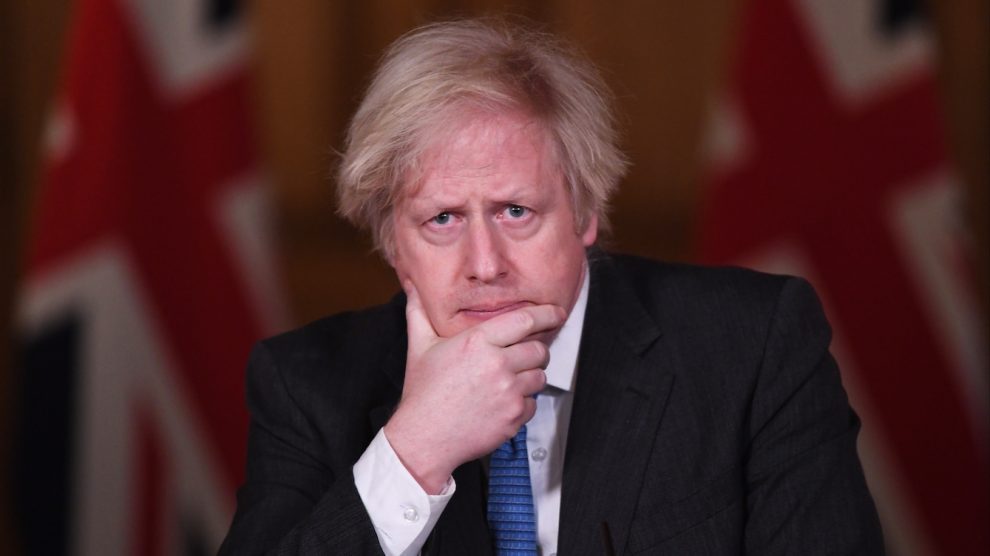The UK’s support for Ukraine’s war effort might well be bolstered by a change of leader in 10 Downing Street.
Many people in Ukraine, starting with the country’s president Volodymyr Zelensky, would have been following events in the United Kingdom over the past couple of days with great concern.
- Emerging Europe’s resilience likely to fade as war and inflation pressures mount
- Financing Ukraine’s reconstruction
- Ukraine calls on NATO help to unblock grain exports
The imminent end (it would appear, although all bets are currently off) of Boris Johnson’s spell as UK prime minister has left Ukrainians wondering if London’s hitherto steadfast support for Kyiv as it fights Russia’s invasion is under threat.
Under Johnson, the UK has led the way in providing vital military assistance to Ukraine. According to the Kiel Institute, which monitors both military and humanitarian foreign assistance for Ukraine, only the United States has sent more military support to Kyiv.
Johnson has become a folk hero in Ukraine since Russia launched its full-scale invasion on February 24, twice visiting Kyiv and showing real leadership in rallying other world leaders to Ukraine’s cause.
When Johnson survived a vote of no-confidence in June, Zelensky said it was “great news”, adding, “I am glad we have not lost a very important ally”.
The UK’s support for Ukraine
As of July 1, almost four billion euros worth of military aid had been pledged by the UK government. The latest support was confirmed at NATO’s Madrid summit on June 30, including sophisticated air defence systems, uncrewed aerial vehicles, innovative new electronic warfare equipment and thousands of pieces of vital kit for Ukrainian soldiers.
This comes in addition to previous support of more than 5,000 NLAW anti-tank missiles made in Northern Ireland, long-range multiple launch rocket systems, artillery systems, including 155mm self-propelled guns, and rapid design and production of short to medium range persistent loitering munitions.
Ben Wallace, the UK’s defence minister and one of the favourites to succeed Johnson when he is eventually forced out of office, said in Madrid: “Britain’s commitment to Ukraine is real and constant and we will stand by them until Russia changes course”.
Wallace, one of the members of the UK cabinet who has yet to resign his post, is making another visit to Kyiv on July 7, and will reassure Zelensky that London’s support for its fight against Russia will not be affected by the political maneuverings in Westminster. Indeed, it may even increase, with any new PM likely to bolster his or her credentials as an ally of Ukraine by making yet more promises of both military and humanitarian aid.
Should the new PM – whomever that may be – also decide to replace Priti Patel as home secretary, it could also become far easier for Ukrainians wanting to join their families in the UK to do so.
Governor of Odesa?
However poorly Johnson has handled the various scandals that now look certain to bring him down, however poorly he has governed Britain, he will at least be able to point to his support for Ukraine as one of few honourable, statesmanlike episodes of his premiership.
But it is important for Ukrainians to understand that Britain’s support for their cause runs deep in the Conservative party – and indeed across the political spectrum. A change in leadership will have no impact on that support.
As for Johnson, given that his popularity in Ukraine now considerably outweighs support at home, perhaps he should consider a job in Ukrainian politics?
Nika Melkozerova, editor of the New Voice of Ukraine, joked on July 4 that Johnson might find a post as governor of Odesa: reference to another populist foreign leader, former Georgian president Mikheil Saakashvili, who was given Ukrainian citizenship in 2015 and briefly installed as a regional governor before falling out with then president Petro Poroshenko.
In 2020, Saakashvili claimed that Zelensky had offered him the chance to return to Ukraine as a deputy prime minister in charge of reform. Whether the offer was genuine or not, only Zelensky knows, but Saakashvili instead returned to Georgia, where he is currently in prison awaiting trial on corruption charges.
Unlike many news and information platforms, Emerging Europe is free to read, and always will be. There is no paywall here. We are independent, not affiliated with nor representing any political party or business organisation. We want the very best for emerging Europe, nothing more, nothing less. Your support will help us continue to spread the word about this amazing region.
You can contribute here. Thank you.




Add Comment